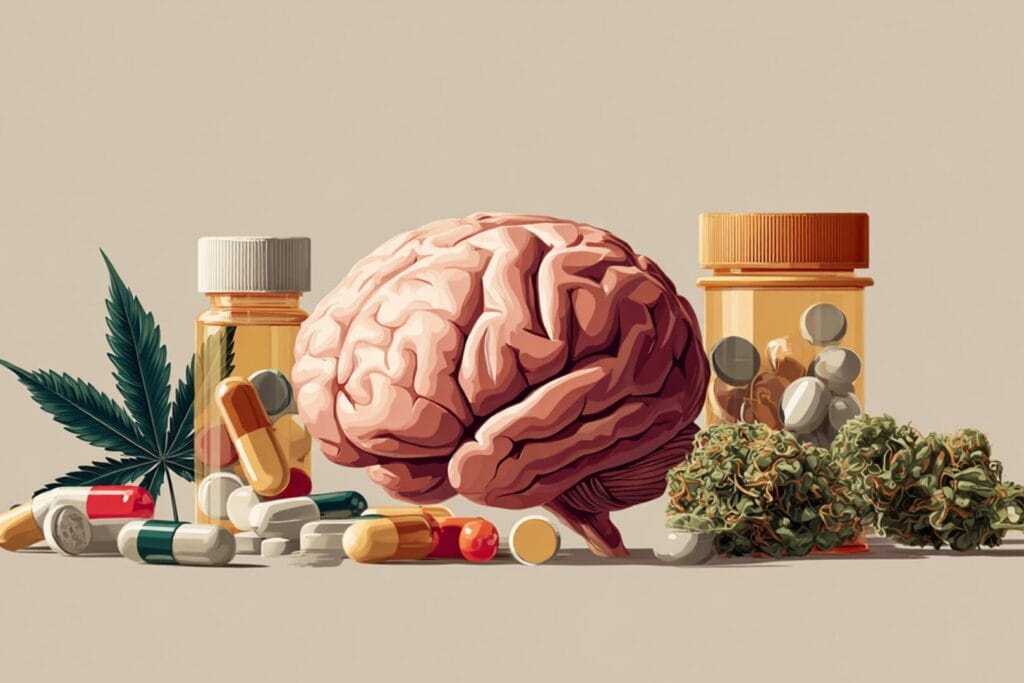You might say you have emotional sobriety when you achieve a balanced, stable state of mind and your emotions aren’t as swayed by the ups and downs that can come with life’s challenges. Emotional sobriety is about having a sense of resilience, inner peace, and self-awareness. It allows you to navigate your feelings, good or bad, in healthy, constructive ways.
What Does Emotional Sobriety Feel Like?
Emotional sobriety can feel like you’ve developed a profound sense of clarity and inner calm. You will likely feel centered and grounded even when things around you are chaotic. You can acknowledge and process your feelings without having them overwhelm you.
We often think about sobriety as being solely focused on abstaining from addictive behaviors or substances, but emotional sobriety is about cultivating a healthy relationship with your own emotions. Rather than letting them control you, you can recognize and accept them.
You’ve likely undergone a journey of self-discovery and growth when you reach a point of emotional sobriety, allowing you to respond to challenges with resilience.
What Are the Signs You’ve Achieved Emotional Sobriety?
While everyone’s journey is unique, signs you’ve achieved emotional sobriety can include:
- Emotional stability: You may have a sense of inner peace and calmness, and you can effectively regulate your emotions while responding to stressful situations in a more balanced way.
- Increased self-awareness: Emotional sobriety can come from self-awareness, which means profoundly understanding your emotions, triggers, and behavior patterns. You can recognize and name how you feel without being overwhelmed, and you’re more in tune with your boundaries and needs.
- Healthy coping mechanisms: You’ve replaced your unhealthy coping strategies, including substance abuse, with healthy ways of managing stress and challenging emotions. This could mean you’re more likely to engage in activities promoting your overall well-being, like meditation and exercise.
- Resilience: Part of emotional sobriety, as well as sobriety from substances, is resilience. When you’re resilient, you can bounce back from disappointment or setbacks more quickly. You can put them into perspective as growth opportunities instead of obstacles you can’t overcome. You adapt to change with optimism and flexibility.
- Authenticity: You feel comfortable being who you truly are and expressing feelings and thoughts authentically. With emotional sobriety, you might notice you’re less concerned about external approval or validation. Instead, your focus moves toward living aligned with your beliefs and values.
- Healthy relationships: Relationships in emotional sobriety are characterized by mutual respect and open communication. You can set boundaries, and you’re less likely to engage in dysfunctional dynamics, like codependency.
- A sense of purpose: A clear sense of purpose and direction in life often stems from emotional sobriety, where you pursue your goals and aspirations while feeling connected to yourself and others.
All the above signs of emotional sobriety mean you’re finding fulfillment throughout your life experiences. The signs don’t necessarily manifest in a linear way or simultaneously, but they can be an indicator of your progress.
How Do You Achieve Emotional Sobriety?
Steps that can help you along the way to achieving emotional sobriety include:
- Listen to your thoughts, feelings, and reactions to develop self-awareness. Work to identify patterns in your emotional responses and explore the reasons behind them. Mindfulness practices can also help you foster self-awareness.
- Practice acceptance of your emotions without resistance or judgment. Tell yourself that it’s natural to experience various positive and negative emotions. Instead of trying to suppress or deny them, let yourself fully experience this range of emotions.
- As an alternative to relying on unhealthy coping mechanisms like drug or alcohol use, identify healthy coping strategies that work well for you. These will become ways to manage stress and challenging emotions.
- Set boundaries in your relationships and daily life to protect your well-being. Let go of things that drain your energy and prioritize things that nourish you.
- Seek support and surround yourself with people with whom you feel comfortable sharing your challenges and experiences.
- Practice persistence and patience, and know that achieving emotional sobriety is a gradual process that requires time and effort.
Celebrate your small victories and give yourself grace as you work toward emotional sobriety.
The Role of Addiction Treatment in Emotional Sobriety
Addiction treatment plays an essential role in achieving emotional sobriety. It provides you with the tools, resources, and support needed to address underlying issues driving your addiction and develop healthier coping mechanisms.
In an addiction treatment program, there’s an emphasis on addressing underlying trauma and mental health issues. Many people who struggle with addiction have experienced trauma or have underlying conditions, like depression. Addiction treatment typically involves therapy and counseling to address these issues so that you can heal and learn how to manage your emotions.
An addiction treatment program provides education and skills training in coping mechanisms and offers an understanding, supportive environment. You’ll connect with others facing similar challenges to reduce isolation and increase accountability and encouragement.
Achieving emotional sobriety can involve learning how to maintain long-term recovery and prevent relapse. In addiction treatment, you will work a lot on relapse prevention strategies and developing a relapse prevention plan that works for you and will help you navigate setbacks and challenges.
There’s also the benefit of having room for self-reflection and opportunities for personal growth when you’re in a treatment program. Addiction treatment encourages introspection so you can gain insight into who you are.
An addiction treatment program facilitates a holistic approach to recovery, addressing not only your physical needs, but the emotional aspects of addiction.
Final Thoughts
Physical sobriety refers to abstinence from substances that directly impact your body. Emotional sobriety, on the other hand, is about achieving a stable state of mind and the ability to navigate challenges effectively.
Both physical and emotional sobriety are necessary for long-term recovery and overall well-being. The two complement each other in helping you live a fulfilling life.
If you’d like to explore addiction treatment options that holistically address your mental and physical needs, San Diego Detox can help. We take a personalized, whole-person approach with each of our individualized treatment plans, so contact us to learn more.







